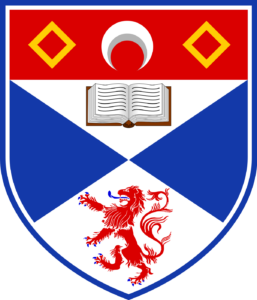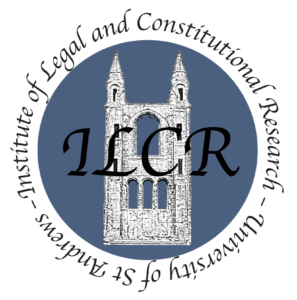Advisory Board
Dame Elish Angiolini KC, Principal of St Hugh’s College Oxford,
and formerly Lord Advocate of Scotland
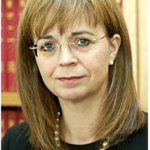
The Right Honourable Dame Elish Angiolini KC became, in 2001, the first woman, the first solicitor and the first Procurator Fiscal to be appointed as the Solicitor General for Scotland. She created another piece of history when she became the first solicitor to be appointed Queen’s Counsel. In 2006 Dame Elish became the first woman in 500 years to be appointed as Lord Advocate, Scotland’s senior Law Officer and she created another legal first in 2008 when she and Frank Mulholland KC, the then Solicitor General were admitted as members of the Faculty of Advocates. She was appointed Dame Commander of the British Empire in May 2011 for services to the administration of Justice and in June 2011 in Seoul, Korea, she received the Special Achievement Award from the International Association of Prosecutors in recognition of her achievements in the field of Criminal Justice both nationally in Scotland and internationally. In June 2011 she was appointed as Chair of a new Commission set up to examine the issue of how female offenders are dealt with in the Criminal Justice System. Dame Elish was recently visiting Professor at the University of Strathclyde where she developed a Masters course in Advocacy studies, the first of its kind in the UK. In February 2012 Dame Elish was elected Principal of St Hugh’s College, Oxford, taking up the post in September 2012.
Sir John Hamilton Baker, KC, Downing Professor Emeritus of the Laws of England, Cambridge
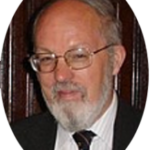
Sir John Baker was Downing Professor of the Laws of England at the University of Cambridge from 1998 until 2011. His research interests include English legal history, especially in the early-modern period; history of the legal profession and the Inns of Court; and manuscript law reports and readings. Alongside his academic career, he is a Barrister at both the Inner Temple and Gray’s Inn, and an Honorary Bencher at the Inner Temple. His substantial list of publications most notably includes the Oxford History of the Laws of England, Volume VI: 1483-1558 (2003) and the frequently reprinted Introduction to English Legal History (1st ed. 1971, 2nd ed. 1979, 3rd ed. 1990, and 4th ed. 2002). However, he has also published extensively on the Inns of Court, including Readings and Moots at the Inns of Court in the Fifteenth Century (2000) and most recently The Men of Court 1440 to 1550: A Prosopography of the Inns of Court and Chancery and the Courts of Law (2012). He has further edited numerous collections of manuscripts and reports, including The Reports of Sir John Spelman (1977), The Reports of William Dalison, 1552-1558 (2007), and Reports from the Time of Henry VIII (2003–04).
Professor Emanuele Conte, Professor of Law, Rome III

Professor of Legal History at the Università degli Studi di Roma Tre and Director of its Department of Legal History and Theory. Professor Conte has also taught at the University of Cagliari, University of Catania, and was a researcher at the University La Sapienza of Rome. He graduated cum laude in 1983 at the University La Sapienza of Rome, and received his Ph.D. in Medieval Legal History at the University of Milan. He has done research at the Max-Planck-Institut für Europäische Rechtsgeschichte Frankfurt am Main, and at the University of California at Berkeley. Professor Conte has held visiting professorships at Universitat Autonoma de Barcelona (Spain), the Ecole des Hautes Etudes en Sciences Sociales, Paris (France), the University of Paris II Panthéon (France), the University of Toulouse I (France), the University of Paris X Nanterre and the Ecole Normale Superieure Lettres et Sciences Humaines, Lyon. He has been visiting fellow at Cambridge University (Peterhouse). He serves as a member of the board of direction of the Rivista Internazionale di Diritto Comune, the board of editors of the e-review Forum Historiae Iuris (Berlin). He is also member of the scientific board of the Ecole Normale Superieure Lettres et Sciences Humaines, Lyon. He has given many papers and lectures in Italy, Germany, France, United Kingdom, USA, Switzerland, Finland, Denmark, Argentina and Spain. His books and other publications focus mainly on medieval and early modern legal history, on philology of legal texts and on the relationship between history and law in the 19th and 20th century.
Professor Malik Dahlan, Principal of Institution Quraysh for Law & Policy

Professor Dahlan is the Principal of Institution Quraysh for Law & Policy (iQ). He is an academic activist, multi-jurisdictional qualified lawyer, a public policy expert, an accredited international negotiator and mediator and a Fellow of the Chartered Institute of Arbitrators. He was named a UN Constitutional Expert and served as a one of ten constitutional advisors for the United Nations Assistance Mission for Iraq. He was Special Adviser to The Rt. Hon. The Lord Woolf of Barnes, former Chief Justice of England and Wales, on strategy and legal matters related to the Middle East. He has an established record as an international advocate for the Rule of Law and was the founding Director of the Qatar Law Forum of Global Leaders in Law assembled to launch the “Global Commitment to the Rule of Law” campaign in 2009. He started his policy career by spearheading the establishment of the Brookings Centre in Doha and was the Centre’s founding Director. He writes and advises on various legal and policy matters covering statesmanship, Islamic law & statecraft, statehood, international regulatory law, dispute resolution, global and regional governance, legislative affairs, defence, energy policies, geopolitics and foreign relations. His latest publications include The Hijaz: Integration, Islamic Statehood and the Origins of Arab Self-Determination; a two-volume book on The Application of the Objectives of Islamic Law on Public Policy; and Hamza Shehata: Manliness (an English translation of a fascinating and thought provoking historic political philosophy lecture) Among other functions, he is a Justice Associate for the Aspen Institute Justice & Society Program; the Chairman of GreenGulf Inc; International Chair of Harvard Law School Association; Board Director of the International Mediation Institute (IMI); and member of Massachusetts General Hospital President’s Council among others. He is a Harvard lawyer and an Alem (Prof. Dr. jur) of the renowned Al-Azhar University where he was decorated with a Distinction and Honour Merit in the First Rank for his professorial qualification (Habilitation Higher Doctorate) in Law & Public Policy. He lectures at various universities both within and outside the UK.
Professor Jill Harries, Emeritus Professor of Ancient History, University of St Andrews

Jill Harries graduated from the University of Oxford in Literae Humaniores in 1973, was a Kennedy Scholar at Harvard (1973-74) and received her doctorate for research on the Later Roman Empire in 1981 (this emerged in substantially revised form as Sidonius Apollinaris and the Fall of Rome, 1994). She was appointed Lecturer in Ancient History at St Andrews in 1976 and became Professor of Ancient History in 1997. She was a Visiting Fellow at All Souls College, Oxford (1996-97) and Bird Fellow at Emory University, Atlanta, Ga. (2003), and is a Fellow of the Royal Society of Edinburgh.
Since the early 1980s, her research has focussed on the functioning of law in Roman society: book publications include Law and Empire in Late Antiquity (1999), Cicero and the Jurists (2006) and Law and Crime in the Roman World (2007) as well as numerous papers and articles. A colloquium) held at St Andrews in 1990 on the Theodosian Code (promulgated at Constantinople in 438) generated a collection of papers edited jointly with Ian Wood (The Theodosian Code, 1993, second edition 2010), which, among other things, encouraged modern Roman lawyers to take its contents more seriously as law. Her belief in the importance of cross-disciplinary research has led to informal co-operation with the School of International Relations at St Andrews over many years, and she has contributed to Tony Lang’s Handbook of Global Constitutionalism. She is now working on the relevance to such modern concepts as constituent power, of ancient constitutional thought as expressed in historiography and panegyric.
Lord Duncan of Springbank

Ian Duncan is a Deputy Speaker of the House of Lords, having been ennobled as a working peer in 2017. Lord Duncan served latterly as the UK Government’s Climate Minister, leading for the UK Government in international climate negotiations. Previously he served as minister in each of the Government’s territorial offices, Northern Ireland, Scotland and Wales. As Northern Ireland minister, in the absence of a devolved Executive and a Commons majority, he led the introduction of legislation in the House of Lords concerning same-sex marriage, abortion and compensation for victims of the troubles. Prior to his ennoblement Lord Duncan was a member of the European Parliament representing Scotland, where he specialised in energy and climate change. He led the reform of carbon trading legislation as the Parliament’s rapporteur and represented the Parliament at several UN climate gatherings. Before entering politics, Lord Duncan spent six years in Brussels as Head of the Scottish Parliament’s EU Office, served as Head of Policy for the Scottish Refugee Council, was Deputy Chief Executive of the Scottish Fishermen’s Federation and an analyst for BP. Lord Duncan holds a doctorate in palaeontology from Bristol University, and a degree in geology from the University of St Andrews. He is a Fellow of the Geological Society and a board member of the Schwarzenegger Institute for State & Global Policy. Lord Duncan is also Chair of the National Forest Company.
Daniel Greenberg
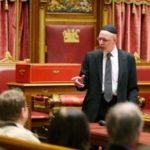
Daniel Greenberg is a lawyer specialising in legislation and the legislative process. He has over 30 years’ experience in the private and public sectors dealing with legislation. He was Parliamentary Counsel from 1991 to 2010. From July 2010 to July 2016 he was employed part-time in the Office of the Speaker’s Counsel in the House of Commons, alongside a City law practice. In August 2016 he became Counsel for Domestic Legislation in the House of Commons, with responsibility for advising the Joint and Select Committees on Statutory Instruments, examining private Bills, advising the Speaker on English Votes for English Laws, and a range of other legislation matters. He has been involved in various ways in the legislative development of Wales and Northern Ireland, working for the National Assembly for Wales, the Welsh Government and the Northern Ireland Assembly, helping them to develop their legislative capacity. Daniel has a consulting practice that involves training, advising on and drafting legislation in the UK and abroad (including the Falkland Islands, Myanmar, Malaysia, Gibraltar and Sri Lanka). He enjoys training and teaching both for DODs and the Civil Service Training College and in collaboration with academic institutions. He is an active associate research fellow of the Institute of Advanced Legal Studies in the University of London where he teaches on the international drafting LLM course. He is a faculty member of the Athabasca University legislative drafting course and an associate research fellow of the Law Faculty of Bar Ilan University. He has recently collaborated with researchers at Imperial College on experimental deployment of machine learning to predict the success and failure of legislative proposals (“Explanations by Arbitrated Argumentative Dispute”, Expert Systems with Applications, Volume 127, 1 August 2019, pages 141-156). His most important publishing activities are Craies on Legislation and Westlaw UK Annotated Statutes and Insight Encyclopaedia. He is also the Editor of OUP’s Statute Law Review, the editor of two legal dictionaries and a contributor to the Oxford English Dictionary. He has written a number of other books and articles and is a contributor to BBC Radio 4’s “Today in Parliament” and “Thought for the Day”.
Professor Lorna Hutson, Merton Professor of English Literature, Oxford University

Lorna Hutson was educated in San Francisco and Edinburgh. She gained a Clothworkers’ Exhibition to read English at Oxford, receiving first-class M.A. honors in 1979, and her D.Phil. in 1983. After a research fellowship at Victoria University, New Zealand, Lorna was Lecturer and then Reader in Renaissance Studies at Queen Mary College, London until 1998. She was then Full Professor at the University of California at Berkeley for four years before coming to St Andrews as the Berry Professor of English Literature in 2004. Lorna has held fellowships from the Folger, the Huntington Library and the Guggenheim, and is a corresponding editor of the journal Representations. In 2016 Lorna took up the position of Merton Professor of English Literature at Oxford University. Professor Hutson’s research interests are in the rhetorical bases of Renaissance literature, and in the relationship between literary form and the formal aspects of non-literary culture. Recent work includes the delivery of the Oxford Wells Shakespeare Lectures, 2012, on ‘Circumstantial Shakespeare’, the editing of Ben Jonson’s Discoveries (1641) for the Cambridge Complete Works of Ben Jonson (2012) and The Invention of Suspicion: Law and Mimesis in Shakespeare and Renaissance Drama (OUP, 2007, pbk 2011), which won the Roland Bainton Prize for Literature in 2008. She is currently working, with Bradin Cormack, on the Oxford Handbook of English Law and Literature, 1500-1700. Lorna has also worked on Ben Jonson, on early modern women’s writing, on the history of sexuality, on friendship, feminism, rhetoric, law and on usury.
Baroness Levitt KC

Baroness Levitt KC was elevated to the House of Lords in January 2025. Having been created Baroness Levitt, of Beachamwell Warren in the County of Norfolk, she took the oath of allegiance in the Lords Chamber, supported by Lord Carlile of Berriew and Lord Kennedy of Southwark. Her elevation to the peerage follows a distinguished legal career spanning more than three decades. Baroness Levitt KC returned to full-time advocacy practise at 2 Hare Court after 5 years in the public service, followed by setting up a new department in a major law firm. From 2009-2014 Baroness Levitt was the Principal Legal Advisor to the DPP and later was head-hunted by Mishcon de Reya to establish their White Collar Crime and Investigations department. She provides advocacy in crime including business crime and in cases with significant foreign and/or public policy elements. She has prepared independent reports on many complex issues, including the Jimmy Savile case, and has carried out two recent safeguarding Inquiries. She has appeared in many high profile matters, and has a particular liking for appellate cases. Her numerous legal and public service appointments include Vice-Chair, Employed Barristers’ Committee of the Bar Council (2018); Vulnerable Witness Advocacy trainer (2018); Committee member, Private Prosecutors’ Association (2018); Chair, Education and Training Committee, Inner Temple (2017 – present); Chair, ‘2022’ Committee (future of legal education and training) (2017); Vice-Chair, International Bar Association Structured Settlements Sub-Committee (2016 – present); Women in Law London Advisory Panel (2016 – present); Inns of Court College of Advocacy Research and Development Committee (2015 – present); Inns of Court College of Advocacy Research and Development Committee (2015 – present); Council of the Inns of Court Training Reform Working Group (2015 – present); Centre for Financial Crime and Security Studies Advisory Board (2015 – present); Blackstone’s Criminal Practice Advisory Board (2011 – present); Blackstone’s Criminal Practice Advisory Board (2011 – present); and Executive Committee, Inner Temple (2012 – 2015 & 2017 – present). She has acted as Trustee for the Kalisher Trust (2018) and the Royal United Services Institute (2017 – present). Her most recent media appearances include discussing the law against Misconduct in Public Office (BBC Radio 4, ‘Unreliable Evidence’ and ‘Law in Action’ series).
Professor Hector MacQueen, Emeritus Professor of Private Law at the University of Edinburgh

Hector MacQueen was a member of the Edinburgh Law School staff from 1979 to 2021, having also taken his LL.B and Ph.D at Edinburgh. Appointed to the Chair of Private Law in 1994, he was Dean of the Law School 1999-2003, and Dean of Research and Deputy Head of the College of Humanities and Social Science in the University 2004-2008. He was on leave of absence January 2010-September 2017, having taken up an initially part-time appointment as a Scottish Law Commissioner on 29 September 2009. Between October 2017 and March 2018 he split his time between completing his Commission projects and teaching in the Law School. After a spell back full-time at the latter, he retired on 31 August 2021 and became Emeritus Professor of Private Law. He continues to teach some undergraduate courses. Professor MacQueen previously held visiting appointments at Cornell University in the USA, the University of Utrecht in the Netherlands, and Stetson University College of Law (‘Florida’s first law school’). He has been a Fellow of the Royal Society of Edinburgh since 1995 and was elected a Fellow of the British Academy in 2006. He chaired the Law section of the Academy 2016-2020, and is also a cross-member in Medieval Studies. Professor MacQueen was President of the Society of Legal Scholars 2012-2013 and Vice-President (Humanities) of the RSE 2008-2011. Professor MacQueen wrote the 1989 centenary history of Heriots Cricket Club, a work enthusiastically reviewed by no less than Alexander McCall Smith in chapter 6 of his novel, Love Over Scotland (2006). He received the CBE for services to legal scholarship in the Queen’s Birthday Honours List in June 2019.
Bridget Mary McCormack, President and CEO, American Arbitration Association-International Centre for Dispute Resolution
Bridget Mary McCormack is President and CEO of the American Arbitration Association-International Centre for Dispute Resolution, the largest alternative dispute resolution institution, which was founded in 1926. She joined the AAA-ICDR® in February 2023, bringing her wealth of judicial, advocacy, and academic experience to an organization that takes seriously its role supporting court systems in the efficient administration of justice. She is also a Strategic Advisor to the Future of the Profession Initiative at the University of Pennsylvania Carey Law School. Until the end of 2022, McCormack was Chief Justice of the Michigan Supreme Court, a position her peers selected her for in January 2019 after she served for six years as a Justice. While on the Court, she championed innovation and the use of technology to improve access to justice while hearing thousands of cases and overseeing a system of 244 trial courts and more than 500 judges. Key administrative accomplishments during her tenure included:
· Establishing Michigan’s Justice for All Commission, which assists those who need but cannot afford legal representation;
· A strategic plan developed by the Michigan Judicial Council, which McCormack has chaired, with the aim of improving transparency and the public’s experience of the court system; and
· As Co-Chair of the Joint Task Force on Jail and Pretrial Incarceration and Chair of the Jail Reform Advisory Council, working across all three branches of Michigan government to examine and, through legislation improve, the experiences of criminal defendants while they await trial.
A graduate of Trinity College and New York University Law School, where she was a Root-Tilden Scholar, McCormack started her legal career in New York City, first as a trial attorney at The Legal Aid Society and then at the Office of the Appellate Defender. In 1996, she joined the Yale Law School faculty and then, in 1998, became a professor at the University of Michigan Law School, where she taught criminal law, legal ethics, and numerous clinics. She was named Associate Dean for Clinical Affairs in 2002 and served in that position for a decade. McCormack also co-founded the Michigan Innocence Clinic which, as of February 2023, had exonerated 26 individuals who had been wrongly convicted. It was the first such clinic in the country not to rely on DNA evidence. McCormack is an editor for the ABA’s preeminent publication, Litigation Journal. She speaks and writes frequently about access to justice, innovation in the legal profession, and legal education. Her dozens of articles in law journals and other publications cover topics ranging from cognitive bias and forensic science to judicial engagement with citizens through social media.
Professor Christopher McCrudden, Professor of Human Rights and Equality Law,
Queen’s University Belfast

Christopher McCrudden is professor of human rights and equality law at the School of Law, Queen’s University Belfast, and L. Bates Lea Global Law Professor at the University of Michigan Law School. He holds an LLB from QUB, an LLM from Yale Law School, and a DPhil and DCL from Oxford University. He is called to the Bars of England and Wales, Northern Ireland, and Ireland, and is a member of Blackstone Chambers in London. QUB awarded him an honorary LLD in 2006. He was elected a Fellow of the British Academy in 2008, a Member of the Royal Irish Academy in 2018, and an Honorary Bencher of the Bar of Northern Ireland in 2022. He is the academic member of the Judicial Studies Board for Northern Ireland. He is also a member of the Board of the Irish Centre for European Law, and chair of its Northern Ireland Committee. His most recent publication is an edited collection, The Law and Practice of the Ireland-Northern Ireland Protocol, published by Cambridge University Press in 2022. He was awarded a CBE in the 2019 New Year’s Honours List.
Lord (Professor Raymond) Plant, Professor of Jurisprudence and Political Philosophy,
King’s College London

Professor Raymond Plant joined the Dickson Poon School of Law in January 2002 as Professor of Jurisprudence and Political Philosophy. He was previously Master of St. Catherine’s College Oxford from 1994 -2000 and before that, Professor of European Political Thought at the University of Southampton. He is a Labour Peer and sits in the House of Lords with the title of Lord Plant of Highfield. In the Lords he is a member of the Joint Committee on Human Rights and has been a member of the Government and Law Sub Committee of the Committee on the European Communities. He has given lecture series at a range of universities: The Agnes Cumming Lectures at University College Dublin; the Sarum Lectures at Oxford University; The Stanton Lectures (twice) at Cambridge University; the Ferguson Lectures at Manchester University; the Scott Holland Lectures at Manchester University; The Stevenson Lectures at Glasgow University. In 2006 he will give the Boutwood Lectures in Cambridge on “The Neo Liberal State and the Rule of Law” and in 2007 the Bampton Lectures at Oxford University on Religion, Citizenship and Liberal Pluralism. In 2005 he is to give the G.Ganz Lecture at Southampton University on “Reflections on the Rule of Law in the UK”. He is a member of the Nuffield Council on Bioethics. He is a Fellow of St Catherine’s College Oxford; of Harris Manchester College Oxford and in 2006 of Corpus Christi College Cambridge.
Dame Louise Richardson, President, Carnegie Corporation of New York

Dame Louise Richardson was appointed as the 13th President of Carnegie Corporation of New York in January 2023. Prior to this role, she served as the Vice-Chancellor of the University of Oxford from January 2016 until her appointment at the Carnegie Corporation. Before her tenure at Oxford, Dame Louise Richardson was Principal and Vice-Chancellor of the University of St Andrews, Scotland, for seven years. A native of Ireland, she received a BA in History from Trinity College, Dublin, an MA in Political Science from UCLA, and an MA and PhD in Government from Harvard. She was Assistant and Associate Professor in the Harvard Government Department 1989-2001. She also served as Executive Dean of the Radcliffe Institute for Advanced Study at Harvard 2001-2008 where she was instrumental in its transformation into an interdisciplinary centre promoting scholarship across academic fields and the creative arts. A political scientist by training, Dame Louise Richardson has specialised in international security with an emphasis on terrorist movements. She has written widely on international terrorism, British foreign and defence policy, security institutions, and international relations. Her publications include Democracy and Counterterrorism: Lessons from the Past (2007), What Terrorists Want: Understanding the Enemy, Containing the Threat (2006), The Roots of Terrorism (2006), and When Allies Differ (1996). She was elected a Fellow of the Royal Society of Edinburgh in 2010 and was appointed to the Scottish Government’s Council of Economic Advisers the following year.
Professor Mark D. West, Nippon Life Professor of Law, University of Michigan Law School
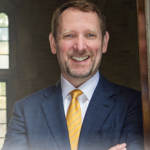
Mark D. West, the Nippon Life Professor of Law and formerly Dean at the University of Michigan Law School, teaches Japanese Law, Criminal Law, and Enterprise Organization. Professor West’s research focuses primarily on Japanese law. He is the author or co-author of five books, including Law in Everyday Japan and the casebook The Japanese Legal System. He has published dozens of articles and essays in Michigan Law Review, the University of Chicago Law Review, the University of Pennsylvania Law Review, the American Journal of Comparative Law, the Journal of Legal Studies, Law and Society Review, and (in Japanese) Jurisuto, Horitsu Jiho, and Leviathan, among others. His publications explore such diverse topics as shareholder derivative suits, the evolution of corporate law, the education and career development of Japanese lawyers, and the ways in which Japanese court opinions frame love, sex, and marriage. Professor West joined the Michigan Law faculty in 1998. He served as director of the University’s Center for Japanese Studies from 2003 to 2007, as the Law School’s associate dean for academic affairs from 2008 to 2013, and as Dean from 2013 to 2023. He has been an Abe Fellow at the University of Tokyo and a Fulbright Scholar and Fellow of the Japan Society for the Promotion of Science at Kyoto University. Before entering academia, Professor West practiced law at the firm Paul, Weiss, Rifkind, Wharton & Garrison LLP in New York and Tokyo. He clerked for the Hon. Eugene H. Nickerson of the U.S. District Court for the Eastern District of New York. He has a BA from Rhodes College and a JD from Columbia Law School.
